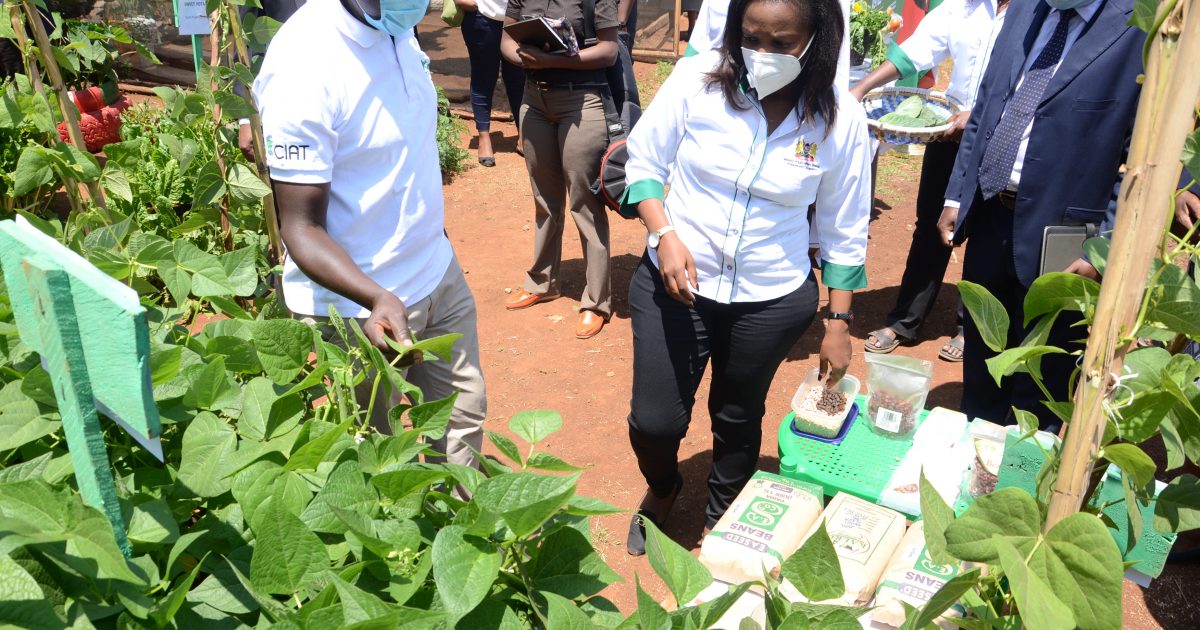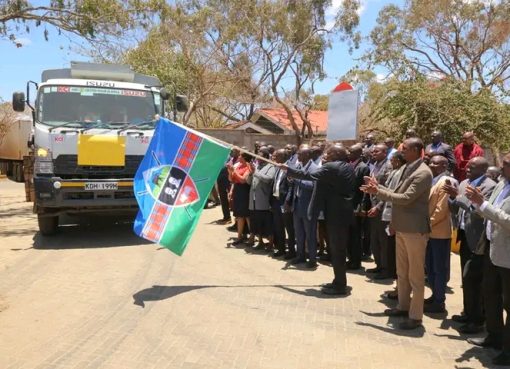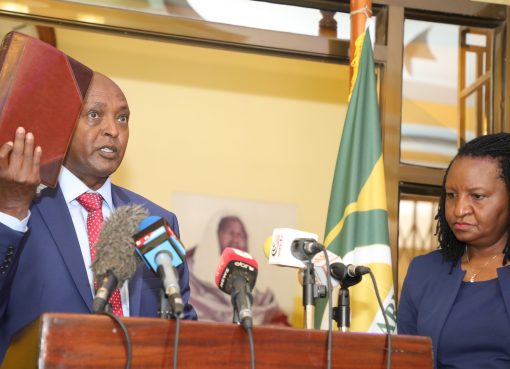Kenya has in the recent past been facing a myriad of food security challenges from Tuta absoluta which attacks tomatoes, Maize lethal necrosis disease, locusts, floods, foul army worm and currently there are golden snails in Mwea attacking rice.
The ministry of agriculture has said that technology has been at the center of responses to the above challenges insisting that agricultural research is necessary for re-engineering the sector to ensure resilience between emergencies such as COVID-19.
Ministry of Agriculture Chief Administrative Secretary (CAS) Anne Nyaga said that no large country has ever achieved significant growth without modernizing agriculture.
Speaking on Wednesday at the Kenya Agricultural and Livestock Research Organization (KALRO) headquarters while officially opening the High panel conference on Agricultural research in Kenya, Nyaga said we have made progress in modernizing agriculture in Kenya but we have not achieved our full potential.
Nyaga said that the Agricultural Sector Transformation and Growth Strategy (ASTGS) 2019-2029 recognizes that to achieve 100 percent food and nutrition security the country needs a more commercial, vibrant and equitable agriculture sector that supports economic development and thus cement the macroeconomic gains and strides that the country has made in cushioning itself from commodity price volatility and lowering dependence on food imports.
“The ministry of agriculture has initiated sector reforms that are anchored on the ASTGS which aims to inform and bring to life the Food security pillar of the Big4 agenda. The strategy consists of nine flagships which are critical in addressing systemic bottlenecks constraining Kenya’s ability to achieve food and nutrition security,” said the CAS.
She explained that flagship eight seeks to strengthen research and innovation and use of digital data to drive better decision making and performance management.
“The national agricultural research systems policy which is currently under review seeks to streamline, rationalize and put in place a system that is consultative, efficient and effective and takes into account economies of scale to not only use the current scientific, human and physical capabilities but also position Kenya as a hub for agricultural research, innovation, and knowledge base in the region,” said Nyaga.
Agriculture Principal Secretary (PS) Hamadi Boga said that when COVID-19 came everyone was scrambling to look for information and data which was a big challenge adding that this is an indication that the producers of knowledge and information are relevant in every crisis we come across.
“It seems like these crises are increasing in terms of numbers and magnitude. Right now we have a crisis developing because the Rift Valley lakes are filling up beyond the known boundaries and we need to go back to history and see if this is a new phenomenon or it has been there because I believe somebody must have kept that data somewhere,” said Boga.
“The ministry has continued to implement the ASTGS despite the COVID-19, floods and locusts. The strategy is written in such a way that pillar nine itself focuses on responding to crisis and it recognizes that the crisis that we will face are economic, diseases and climate related,” said Boga.
Boga said that as we emerge from the crisis they are looking at developing a robust risk management action plan for the agriculture sector which is backed by knowledge so that they do not scramble when there is a challenge.
“When COVID-19 came it looked like a medical crisis but as it evolved and the lockdowns kicked in, there was a challenge in food production due to logistics and getting the inputs in time, getting the food to the market, stability of produce prices, panic buying by consumers and all this needed to be understood and stabilized and we created a food security war room which enabled us to track all these aspects,” explained the PS.
He added that since that we are a food deficit country in some respect seeing that we import a lot of wheat and rice, they had to check the market environment and look at the global scene to ascertain if there is enough of these commodities because there were lockdowns everywhere and they had to make sure that the inflow remain stable and thus protocols were put in place to facilitate movement of food.
“The political and social economic facets need to support the agriculture sector since science conversation alone is hard to get into the political discourse and we are working even with journalists to make sure that even the hard science is discussed and explained so that the voters can understand that science provides solutions for some of the challenges that they are facing,” said Boga.
KALRO Director-General Dr Eliud Kireger said that they are spearheading the development of several technologies, innovations and management practices that include improved high yielding crop varieties, crop disease, pest management and livestock vaccines,
“We have also partnered with other stakeholders in responding to new and emerging issues among them climate change, pest and diseases and aflatoxin management,” said Kireger.
By Joseph Ng’ang’a





